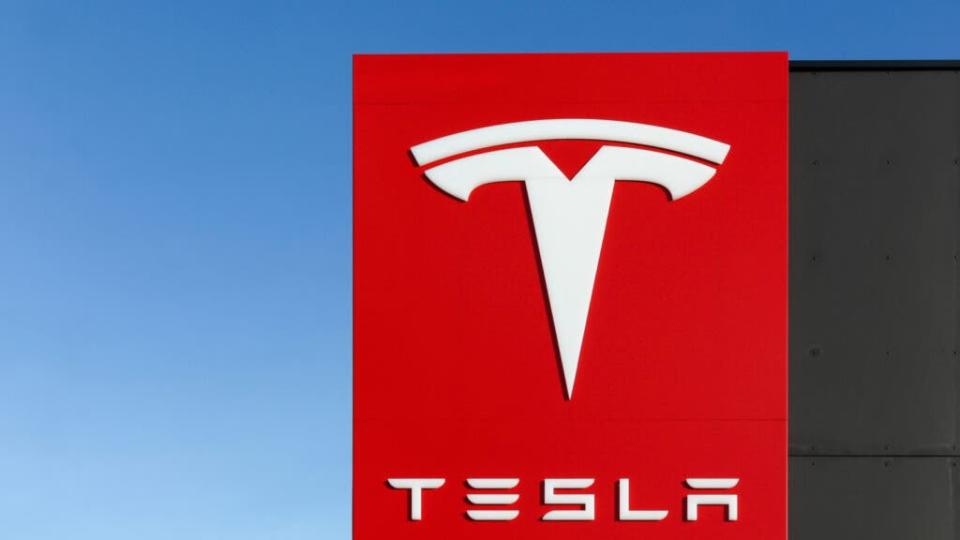Elon Musk Says He Never Wanted To Be CEO Of Tesla Or Anything: 'Running Companies Hurts My Heart,' But He Sees No Other Way

Elon Musk, recognized for his pivotal roles in SpaceX and Tesla Inc., has consistently expressed a preference for focusing on product development and technology rather than corporate leadership. Despite his position as a renowned CEO, Musk never aspired to be one.
His journey to becoming an influential figure in 21st-century business reflects a man driven more by a passion for innovation and technological advancement than by a desire for corporate dominance.
Don't Miss:
Airbnb was worth $47 billion at IPO. This startup is automating the trillion-dollar hospitality market.
Funders on this alternative asset platform are earning more than 14% annualized consignment profit funding Pro consignment opportunities.
Musk’s career began in the late 1990s with Zip2 Corp., a company that offered business directories and maps for newspapers. Despite his significant contributions, Musk’s initial attempt to become CEO of Zip2 did not materialize. He moved on to establish X.com, an online financial services and email payment company that evolved into PayPal Inc. In this venture, Musk faced a leadership transition by the end of 1999, attributed to concerns over his executive experience. This early phase of his career was characterized by groundbreaking ideas but also by challenges in his leadership roles.
During a 2020 episode of the "Third Row Tesla" podcast, Musk discussed his initial reluctance to assume the CEO position at Tesla. Although he said he tried not to become CEO of Tesla, he clarified, "This is misinterpreted like I somehow don’t love Tesla, which I do, it’s just like trying not to go insane with work."
In 2003, after test-driving the tzero, an electric sports car, he was inspired to commercialize it through AC Propulsion. A suggestion to join forces with Tesla redirected his path. Musk invested in Tesla in 2004, aligning with founders Martin Eberhard, Marc Tarpenning, Ian Wright and JB Straubel. The decision to appoint a CEO led to significant internal strife, culminating in Eberhard initially taking the helm.
Trending: The average American couple has saved this much money for retirement — How do you compare?
Tesla's early years were fraught with challenges, including technical difficulties with prototypes and budget overruns under Eberhard’s leadership. These issues led to Eberhard’s exit, followed by a series of interim CEOs before Musk stepped in to lead the company in October 2008. His decision to take on this role was primarily motivated by the need to navigate the company through its tumultuous period and his dedication to Tesla’s vision.
Musk’s perspective is captured in his June 2022 post X: ‘I never wanted to be CEO — just wanted to work on product/technology.’
He also shared the emotional toll of running companies, writing, "Running companies hurts my heart, but I don’t see any other way to bring technology & design to fruition." These remarks offer a window into Musk’s mindset, revealing his hesitance toward the CEO role, influenced not by a lack of capability, but by his inclination toward the innovative and technical aspects of business.
His evolution from a visionary technologist to a CEO was marked by necessity rather than aspiration. His leadership at Tesla, particularly during its critical phases, highlights his commitment to the company’s mission and his preference for innovation over traditional corporate power.
Startups, like Tesla in its early days, are hotbeds of innovation and potential. They offer unique opportunities to be part of something revolutionary — a chance to contribute to and benefit from the ground-breaking ideas that are shaping the future. Investing in startups offers a chance to support and be part of the next big success story in technology and business.
Read Next:
Hedge funds intend to snatch all pre-IPO shares of future AI unicorns before you can. But there is one venture product investing on your behalf.
For decades, Wall Street has been synonymous with the financial world. This startup is is a disruptive force. Learn how you can take advantage of a new investment opportunity.
"ACTIVE INVESTORS' SECRET WEAPON" Supercharge Your Stock Market Game with the #1 "news & everything else" trading tool: Benzinga Pro - Click here to start Your 14-Day Trial Now!
Get the latest stock analysis from Benzinga?
This article Elon Musk Says He Never Wanted To Be CEO Of Tesla Or Anything: 'Running Companies Hurts My Heart,' But He Sees No Other Way originally appeared on Benzinga.com
© 2024 Benzinga.com. Benzinga does not provide investment advice. All rights reserved.

 Yahoo Finance
Yahoo Finance 